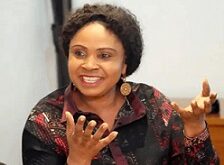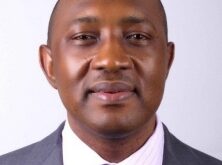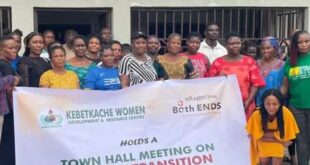By Godwin Chukwumaechi
Advocacy and rights group, Ashcraft Centre for Social Science Research, has disclosed plans to host a South-South Zonal Stakeholders Summit, with the theme: ‘Domesticating Stakeholders Statutory Responsibilities in Protecting Nigeria’s Critical Infrastructure and Assets.’
The summit is a private/public sector partnership, with the aim of “galvanising responsibility and synergy for the prioritisation of the multi-Agency/Joint Risk Management Efforts, towards ensuring the security and resilience of Nigeria’s critical national assets in line with the risk management framework of the National Protection Policy and Strategy 2022 and the Critical National Infrastructure Bill, presently under consideration at the National Assembly.
According to Dr. Alfred Chiakor, chief of strategic planning and innovation at Ashcraft, the summit also “aims to intensify advocacy for Stakeholder Statutory Responsibilities. It shall also engender the re-engineering of appropriate legislation; and strategic roadmap for harnessing expert knowledge and country-wide technical support for deterrence, codified response strategy and recovery architecture to Nigeria’s critical assets.
“Equally important is the desire to seek renewed commitment to the challenges impacting the integrity of critical infrastructure and assets in the region, especially the vandalisation and destruction of its complex ecosystem of separate yet interconnected infrastructure in the oil and gas, telecommunications, transportation and power sectors,” he added
Chiakor announced that the summit, which has been slated to hold in Port Harcourt on July 25 and 26, 2022, is a follow up to the successful Abuja version of February 28 and March 1, 2022.
He told journalists in Port Harcourt at a press briefing on Monday that it has become imperative to domesticate the proceedings of the summit at the zonal levels, adding that host communities form the basis of the summit.
Chiakor said: “The last two decades have demonstrated clearly that the nature of threats to Nigeria’s security has changed significantly. Structural challenges, such as the systematic vandalism, degradation and destruction of Nigeria’s critical infrastructure, monuments, and business assets; terrorism, insurgency, cyber crimes, banditry, kidnapping, among others, have created an entirely new security environment.
“Nigeria faces more security threats that have different characteristics from classic military conflict between states. The gross expansion of the contours that define security boundaries makes it imperative to recognise the eco-systematic dimension of the threats that stare at us daily and in every form”.
He explained that to achieve the projected outcome and also sustain confidence building, divers stakeholders have been mobilised to discuss the challenges impacting integrity, operations and security of the physical infrastructure assets and seek possible solutions and suggestions.
Chiakor went on: “By building inter/multi sectors synergy, the summit shall engender stakeholders and citizens with shared responsibilities towards achieving the institutionalisation of the roadmap and priorities of the policy framework crafted to provide deterrence, security and resilience of Nigeria’s assets.
“It is also the expectation of the conveners that the derivatives from the summit shall enhance knowledge leadership and management, regenerate confidence in securing foreign direct investment into Nigeria’s productive sectors; and also boost capital growth and turnkey business start-ups and development.
“The security of lives, infrastructures, monuments and assets is the collective responsibility of every citizen, whether private or public. Issues of security, destruction of lives and property know neither religion not ethnicity.
“We are calling on the partnership and support of all stakeholders, both in the public and private sectors, with diverse political, religious and professional orientations to put aside all prejudices to help forge a common front to confront the monster that is threatening the integrity of our corporate existence as a people and as a nation.
“It is time also to live the slogan of ‘if you see something, say something. If you hear something, do something,” he said.
Chiakor listed some expected participants at the summit to include National and State Assembly, members, the security and intelligence agencies, statutory regulators in the diverse sectors of Nigeria’s productive economy.
Others are investors/business owners, operators of the infrastructure and assets, professional and civil society organisations, the traditional institutions, socio-cultural and pressure groups.
 PH Mundial – Port Harcourt Online Newspaper News Across The Region
PH Mundial – Port Harcourt Online Newspaper News Across The Region





